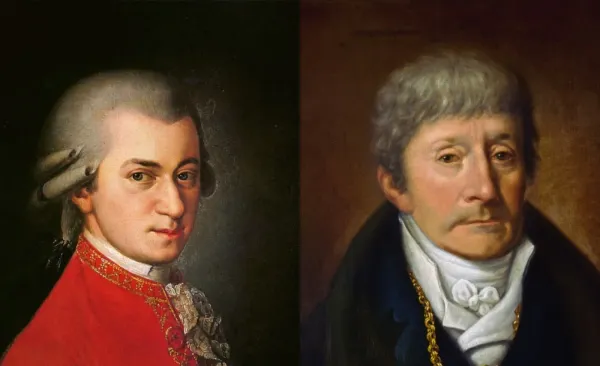How Music Can Affect Our Decisions

Music can serve all sorts of functions in our world—it can create a place of solace, help us wind down, turn inwards, let loose, and have fun, and even affect our psychological processes. Hearing songs we associate with loved ones can evoke heartwarming memories, while listening to songs we aren’t necessarily fans of can trigger negative emotions. Music is such a powerful entity that it can change the trajectory of our day by shaping the way we make decisions. But is there a science behind its influence on our psyches?
How Music Is Applied in Different Settings
If we were to do a deep dive into all the settings in which music plays a role, we could write an entire article on each. One of the most obvious areas we could look at is the retail and restaurant sectors, where stores frequently utilize music to create a certain ambiance. We might walk into a clothing store that primarily sells streetwear and be met with the latest R&B and hip-hop tunes, while a high-end bistro would likely complement its offerings with jazz or ambient music instead. These choices have a lot of intention behind them, as they influence consumer behavior and capitalize on it behind the scenes.
This tactic extends to other places like spas, where meditation music induces a level of calm, and hotels that use relaxing melodies in the lobby to welcome their guests. In the gambling world, whether on the virtual casinos listed on casinos.com or at the brick-and-mortar casinos on the Las Vegas Strip, sounds and jingles are designed as psychological cues that pair with vibrant icons, spinning wheels, and flashing lights. Whether it’s a happy-go-lucky chime indicating that you’ve won something or a crescendo building to create suspense, all these sounds exist for good reason.
The Correlation Between Music and Our Psychology
As music shapes our emotions, it naturally ends up guiding what goes on in our brains, eventually guiding our actions. They could range from a subtle preference to a more dramatic life-changing decision. That’s inherently powerful and potentially strange to think about—how could a simple collection of notes or layers of harmonies have such authority over our thoughts, feelings, and behaviors? Well, given its application in various industries and commercial settings, it’s clear that it goes beyond background music.
Music has a complex relationship with human psychology—and it starts with its effects on emotional regulation. There’s a reason why sports stadiums experience a collective boost in morale after Queen’s “We Will Rock You” starts playing or why pieces by Debussy are perfect to listen to during bouts of deep work. The specific tempo, the lyrics being sung, the chords used, and all other components of a song tap into our auditory cortex (the part of our brain that processes and decodes music) and affect our nervous system, memory center, limbic system (the brain’s emotional center), and, most importantly to our discussion, the prefrontal cortex—the part of our brain responsible for decision-making and emotional regulation.
No matter how logical a person may consider themselves, there’s an irrefutable emotional component to our psychology. Disregarding the rarest of cases, most of us aren’t immune to music’s effect on our brains. Once we are rooted in certain emotions, our state will influence the decisions we make. Maybe we become more impulsive and braver from a newfound confidence or, in contrast, feel like retreating into our safe spaces because we’re feeling anxious. These emotions could also induce a cognitive bias that could change how we grasp and interpret certain information, alter our energy levels, or, on a broader scale, influence group dynamics.
What Does This All Mean for Society?
Because music has such an impact on decision-making processes, we can leverage it to create positive outcomes. And we’ve already seen instances of this in advertising and marketing. Many of the commercials that pop up on TV or radio strive to make emotional connections with the audience through memorable jingles or chosen songs.
When it comes to productivity, research suggests that certain types of music are ideal for focus and concentration. We can look to the Mozart Effect, which suggests that listening to Mozart’s pieces can boost certain cognitive functions—including spatial-temporal reasoning. Spatial-temporal reasoning certainly has a decision-making component or outcome to it, helping us visualize images and structures, simulate scenarios, plan out routes, decide where to move to, reposition objects, and make quick-fire decisions in dire situations.
In psychotherapy, music therapy can harness the ability of music to address a spectrum of cognitive, physical, and emotional needs. It can reduce the perception of pain for those living with chronic diseases, help patients recovering from brain-related injuries in the rehabilitation process, and help others manage their emotions in a healthy manner. These benefits even extend to the elderly population, helping them manage common diseases like dementia or Alzheimer’s disease. Incredibly, music can spark memories for those individuals and lift cognitive function—a beautiful demonstration of how music can impact our decisions on our own and others’ health and treatment options.
Decision-making doesn’t just involve choosing between red or green or whether to go left or right. It’s a multi-faceted process highly influenced by our experiences, emotions, and inherent environment. These aspects come together as a dominant force, ultimately swaying what we decide to buy, say, watch, hear, and who we choose to be.





